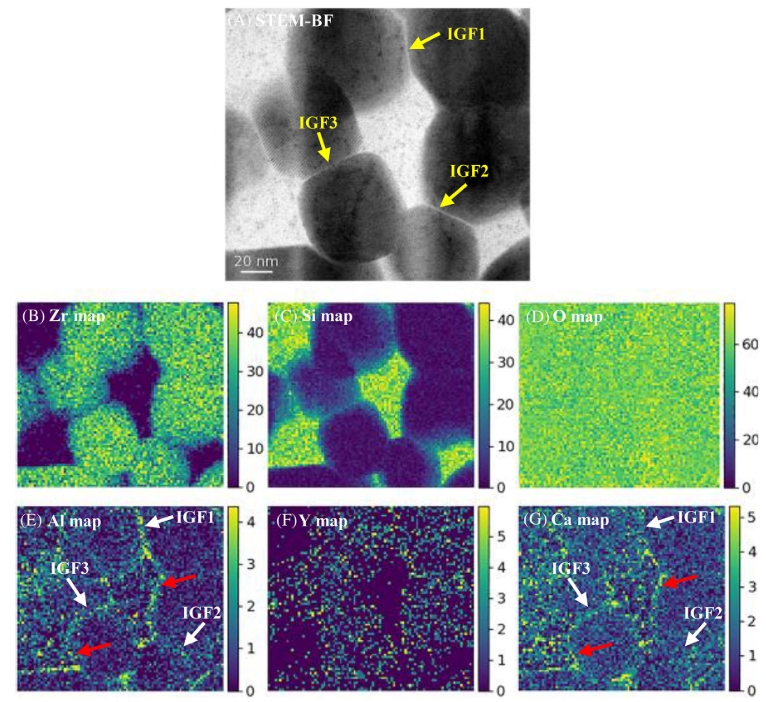DOI number:10.1111/jace.18945
Journal:Journal of the American Ceramic Society
Abstract:Liquid phase sintering is an effective pathway to assist the densification of ceramics. However, it has seldomly been used to densify glass-ceramics. In the present study, a multi-element co-doping strategy has been utilized to achieve liquid phase sintering of a ZrO2-SiO2 nanocrystalline glass-ceramic. Compared with undoped samples densified by solid state sintering, doping of equimolar Al, Y, and Ca promoted the densification of the glass-ceramic at lower temperatures with a faster densification rate. Ternary doping enhanced coarsening of ZrO2 nanocrystallites during sintering and annealing. The distribution of dopants was carefully observed with X-ray energy-dispersive spectrometry (EDS) technique in scanning electron transmission microscopy (STEM) mode. Results showed that the three dopants showed different distribution behaviors. After sintering, Y dopants were predominately distributed in ZrO2 nanocrystallites, whereas, part of Al and Ca dopants were distributed in ZrO2 nanocrystallites and part of them co-segregated at the ZrO2/SiO2 heterointerfaces. Meanwhile, segregation of Ca dopant at some the intergranular films between ZrO2 nanocrystallites was observed. Redistribution of dopants did not occur during annealing.
Co-author:Bohan Wang, Ying Deng, Guofu Xu, Jiwu Huang, Hakan Engqvist
First Author:Le Fu*
Indexed by:Journal paper
Correspondence Author:Wei Xia
Volume:106
Page Number:2702-2715
Translation or Not:no
Links to published journals:https://ceramics.onlinelibrary.wiley.com/doi/10.1111/jace.18945


